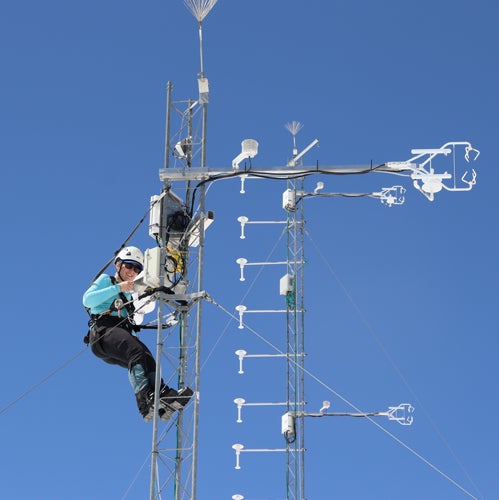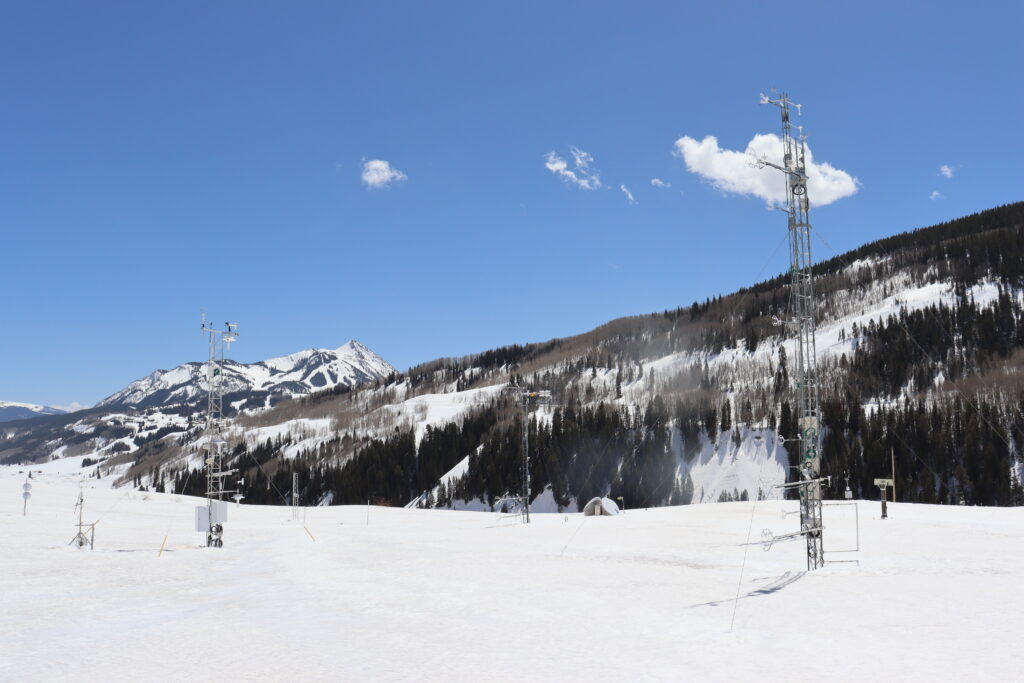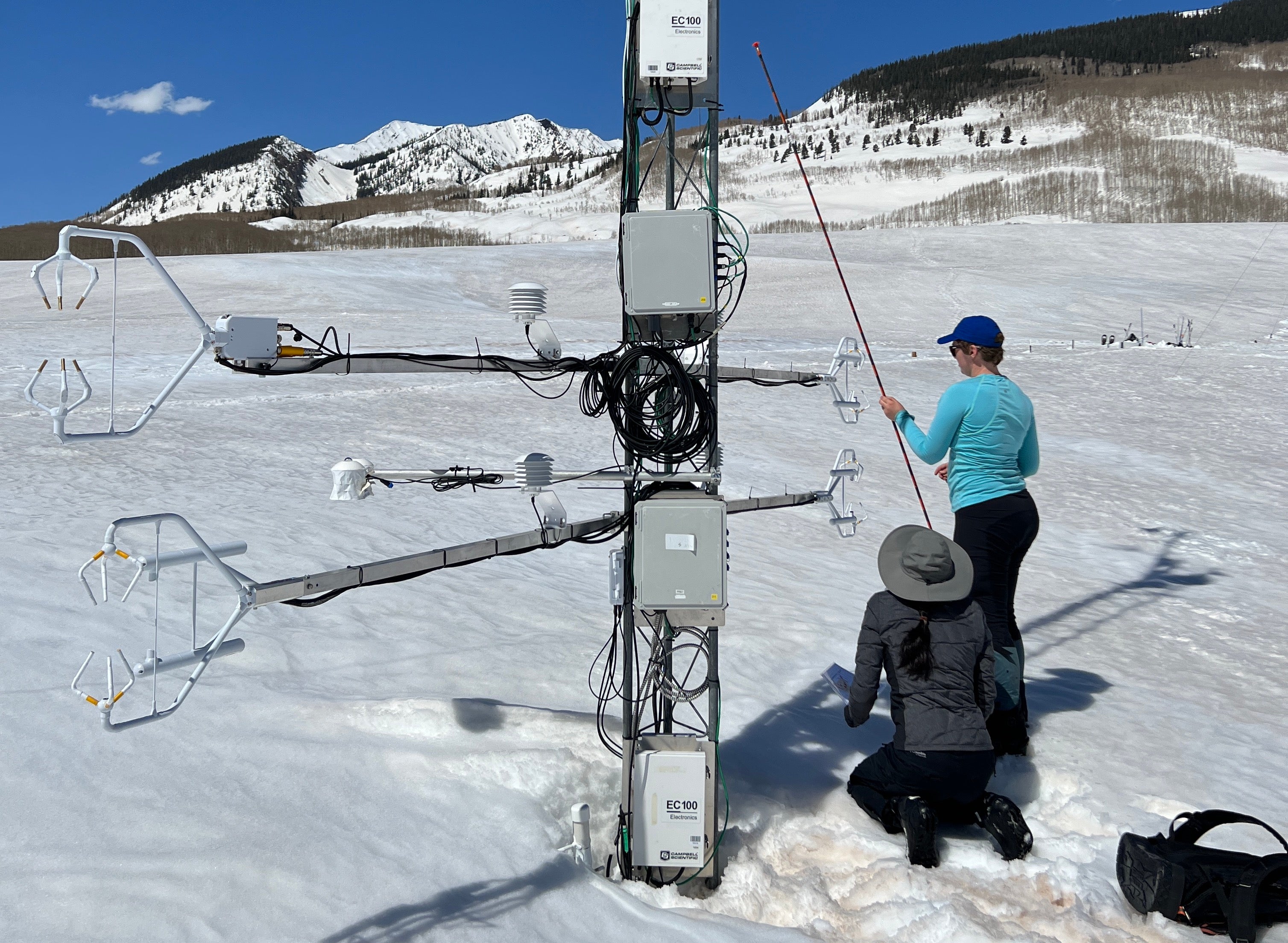By ucar.edu
Scientists have wrapped up a major field project high in the Colorado mountains that will eventually help water resource managers to better quantify critical water resources stored in mountain snowpacks.
The Sublimation of Snow (SOS) project, which ran from October 2022 to May 2023, aims to advance understanding of the process of snow evaporating into the atmosphere instead of melting into water. This process, known as sublimation, has a major effect on water resources in the western United States, where runoff from mountain snowpack is needed to ensure adequate water for farms, businesses, and growing numbers of residents.
In order to improve predictions of water availability in the spring and summer, officials must be able to quantify how much water is being lost to sublimation. The main culprits of sublimation are sunshine beating down on the surface of the snow and dry winds sweeping across it.
The SOS project was led by the University of Washington and the Aspen Global Change Institute in collaboration with NCAR.

To observe what happens to snow as it falls and piles up on the ground, scientists set up the SOS field site near the Rocky Mountain Biological Laboratory outside of Crested Butte, Colorado. The site consisted of four towers, 10-20 meters high, loaded with a variety of instruments that collected data on wind speed, snowfall, and blowing snow. This enabled the scientists to measure the depth of the snowpack, temperature of the snowpack surface, and intensity of the Sun.


